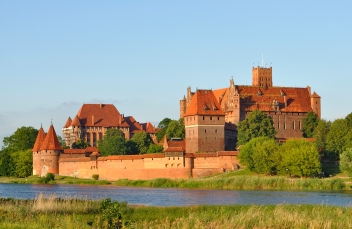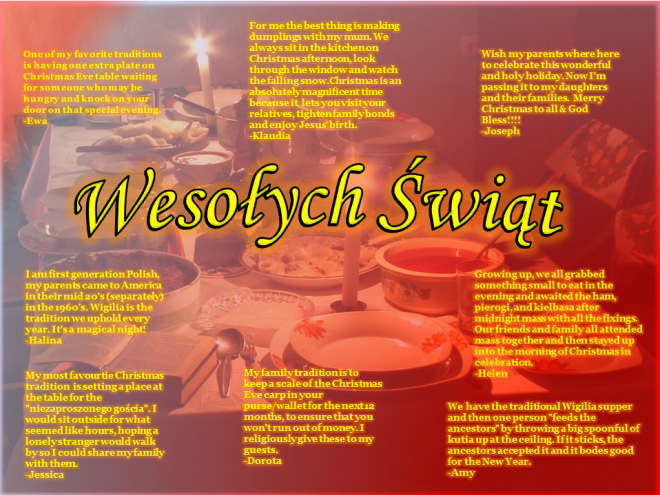It’s the 101st anniversary of Poland’s independence, and celebrations are being held around the world in commemoration. This coincides with the 101st anniversary of the end of World War I on November 11, 1918 and Veterans Day in the United States.
The two events are intricately linked. The end of the Great War and collapse of the German, Austro-Hungarian and Russian monarchies ushered in an age of freedom and independence for many former subjects, including Poland.
But the November 11, 1918 independence date sells Poland short. True, Poland gained its freedom after 123 years of foreign occupation, but it’s important not to forget that Poland had been a powerful, independent kingdom prior to its partitions in the late eighteenth century.
Poland’s Glorious Past

Not only had Poland been independent in a distant age before 1918, it had thrived as one of the largest and most powerful states in Europe.
Its origins can be traced to the Dark Ages during the migration of Slavic people into Europe. Sometime in the eighth to ninth centuries, a tribe of the Western Slavs, the Polans, settled the Warta River Basin in the region today known as Greater Poland.
In 966 AD, the Polan ruler, Mieszko I, converted to Christianity in what became known as the Baptism of Poland. This date is traditionally taken to be Poland’s beginning as a state.
Over the next three centuries, Poland’s rulers expanded its territories to include much of modern-day Poland and beyond. Political infighting during the twelfth century and a Mongol invasion in the middle of the thirteenth threatened to destroy the fledgling kingdom, but it survived.
In the fourteenth century, Poland began an intimate relationship with its neighbor Lithuania to form a coalition against the encroaching German Teutonic Knights. In 1410 during the Battle of Grunwald, the German Knights were crushed by the Poles and Lithuanians and eventually became their vassals.
In 1569, the Polish-Lithuanian Commonwealth was officially formed. At its peak, this massive state stretched from the Baltic to the Black Seas, spanning 400,000 square miles with a population of 11 million.
During this time, Poland became one of the most advanced states in Europe politically, culturally and scientifically. It was one of the earliest states to experiment with democracy by having its kings elected by the nobility. Granted, these “Golden Liberties” enjoyed by the nobles were not shared with the common people, but Poland’s government was leagues ahead of the royal absolutism prevailing in countries like France and Russia.

Poland was also much more multiethnic and religiously tolerant than its European neighbors at the time. Jews, who had been kicked out of virtually every western country were welcome in Poland.
Culturally, poetry and literature flourished. Jagiellonian University in Krakow was a center of learning and scholarship, producing such luminaries as Nicolaus Copernicus who formulated that the earth revolved around the sun.
Militarily, the Polish-Lithuanian Commonwealth was a force to behold. The Ottoman Empire learned this the hard way when, during their Siege of Vienna in 1683, they were cut down by legions of Polish Winged Hussars, who drowned them in a sea of white and red.
This Golden Age of Poland, lasting from roughly the fifteenth through the early seventeenth centuries, is forgotten by many thanks to its collapse and subsequent repression by occupiers. Internal corruption and external aggression doomed Poland in the eighteenth century when it was engulfed by Russia, Prussia and Austria-Hungary.
Polish Independence Day, then, commemorates the hope and national zeal of the Polish people in 1918, a people who still had a faint recollection of Poland’s Golden Age and sought to resurrect it.
A New Chapter
Today, Poland’s near-destruction in World War II somewhat dampens the significance of its independence in 1918. After all, just two decades after regaining freedom, Poland faced not only political repression but the possibility of total extinction, first from the Germans and then from the Soviets. It emerged from those dark times, but the world had largely forgotten about it due to its enemies’ attempts to erase its history and culture.
Many look at November 11, 1918 as Poland’s beginning, not knowing what came before, but that doesn’t do this great nation and people justice. Celebrate Polish Independence Day but do so in context. It was the start of a new chapter in Polish history, not the beginning of the book.



















 …medieval churches and cathedrals
…medieval churches and cathedrals
 …watching the rural countryside while taking a train
…watching the rural countryside while taking a train
 On this Wigilia, I would like to share an opłatek with all of my readers and social media followers. For those who may not know, breaking the opłatek wafer at Christmas Eve is an age-old Polish tradition occurring right before supper. First, the father breaks the opłatek in half with the mother. Both wish each other health, joy, or whatever else they might desire before eating it. Afterward, the rest of the family follows suit in a ceremony of hope and love. They even make colored opłatek for animals!
On this Wigilia, I would like to share an opłatek with all of my readers and social media followers. For those who may not know, breaking the opłatek wafer at Christmas Eve is an age-old Polish tradition occurring right before supper. First, the father breaks the opłatek in half with the mother. Both wish each other health, joy, or whatever else they might desire before eating it. Afterward, the rest of the family follows suit in a ceremony of hope and love. They even make colored opłatek for animals!

